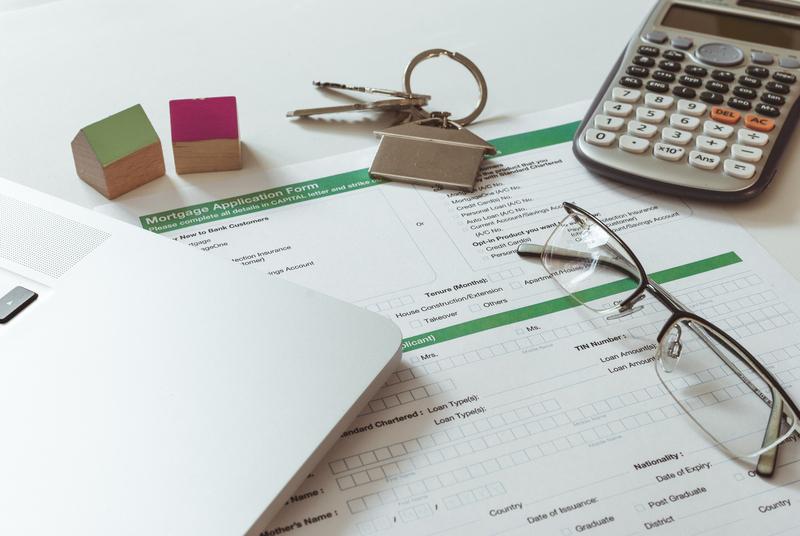
by Mrs C | Oct 19, 2020 | Blog
Retirement is something that people look forward to for years. However, it is important to make sure that you are prepared for retirement before you get to it. The following are just a few ways that you can secure your finances before you retire and invest in your future.
Pay Off All Your Debt
Before you retire, you should make it a priority to pay off all of your debt, including your mortgage debt. You can pay off your home much faster by using house hacking as a means to get rental income. But what is house hacking? House hacking is the method of owning multi-family rental properties and living in the unit while renters pay the expenses. This is a popular investment and a smart way to make money while saving money at the same time.
Diversify Your Wealth
Before you retire, it’s important to have a diverse income. It’s not good to just put all your eggs in one basket. You want to make sure that you have lots of different sources of income. From pensions to investments, there are many ways to diversify your wealth and create a strong income for retirement. Not only will it help you short-term, but it will help you to continue having funds over the years. Considering that you live longer than expected, having diverse sources of income will help you to keep a good chunk of your portfolio growing.
Start an Emergency Fund
Starting an emergency fund is something that you should do early on in your career. However, it is something that you can start and add to at any time of your life. Having a fund specifically for emergencies can be good for any unforeseen future expenses. You never know if you’ll have an accident and need to go to the hospital. As a person on a fixed income, you don’t want to be scrambling for funds. Starting an emergency fund early can help you to make sure that any of these expenses are covered.
Regardless of your age, it’s never too early to start saving for retirement. Making plans now to be financially secure will help you to avoid a lot of heartache in the future. From starting an emergency fund to paying off debts, there are many things that you can do to reach financial security. You just have to take the first step.
Read this next: How to Be More Mindful of Your Living Expenses

by Mrs C | Oct 5, 2020 | Blog
When surprised with a sudden windfall, it can be impossible to think straight. What should you do with the money? What do you want to do? There are an overwhelming number of possibilities—what should you think about first? Don’t let this excitement overcome your ability to find the best use for your money. This article helps give you some ideas to help you know what you can do with your sudden acquisition of wealth so you don’t have to do all the thinking.
Pay Off Debt
The first thing you should consider doing with your sudden windfall is paying off any debt you may have. One of the best ways to use your money to save you from losing money is by paying off your debt. The faster you pay off your debt (especially on high-interest debt), the more money you save in the long run. This includes paying off your credit cards. Though it may seem beneficial to carry a balance to increase your credit score, this is simply not true.
Imagine the mental load and the stress that comes from not having any debt. Imagine owning your future income without having to pay your past self. Imagine how much you could do with your financial independence. In fact, being debt free leaves you freer to do the other things on this list.
Save for College
College is hard. College is expensive. College is even harder if you have to work long hours to make ends meet. College is also an important aspect of your children’s future, and they will be grateful for any help that you can provide. Consider using the money to invest in this aspect of your children’s lives.
There are different perspectives of the pros and cons of helping your children pay for college. Some believe that it takes away too much responsibility off the heads of their children, resulting in them not valuing their education. Other parents fear that it would be impossible for their children to make it through college without all their tuition paid for them.
Here is the secret—it depends on the child and your situation in life. Make the decision that will be best for your family and your children. But consider this—if you don’t make the choice to save for your children’s college now, you may not have the money later even if you want it.
Invest the Money
Investing money is a great way to make sure that your sudden windfall turns into more money. You can make a smart long-term investment in a taxable brokerage account. Investments may seem slippery and complicated, but they are not as intimidating as you might think. Research what options you may have. Consider talking to a financial advisor about how to best invest your money so you can make the most out of your money.
Start a Home Renovation Project
Have you had a dream kitchen in mind? How about a beautiful backyard? Has your bathroom needed touching up for years? Renovating your home and fixing any problems it may have is a great way to use your extra money. It helps improve your quality of life and increase the value of your home.
There are many renovations to consider, both inside and outside your home. One renovation to consider is a deck. Adding a deck has many benefits for homeowners over the long term. A deck is a great place to gather with your friends and family, provides more usable space, and can even encourage a healthier lifestyle by promoting more time outside. Other renovations will add not just add to the quality of life that you have, but the money value of your home.
Add to Retirement
No matter what stage of life you are in, this is the perfect opportunity to add to your retirement. In fact, the earlier you add to your retirement, the less you have to put aside per month, and the longer the money can be working to make you money. Maybe with the extra boost, you may be able to retire early. Or because you’re adding so much now, you don’t have to worry as much later. There is much to be said about removing undue stress from your older self.
Build an Emergency Fund
You can’t possibly plan for all the bumps in the road of life. Some of these bumps are medical emergencies, losing a job, surprise home and car repairs, natural disasters, and others. Building an emergency fund can help you avoid debt by giving you a sufficient buffer to deal with these problems without having to pull money from another source.
Buy a Home
Do you have a home for your family yet? Or have you been eyeing your dream home for a while? Buying a home shouldn’t be a purchase that you take lightly or make too quickly, but a sudden windfall could be just the thing to help you on the path to owning your own (or your dream) home. Though not all sudden windfalls are sufficiently large to pay for a house outright, they can help contribute to your down payment.
Create a Memory
Nothing can replace the memories that you have. And nothing can replace the memories that you help build for other people. As you consider how to spend your windfall, don’t forget about the people around you that make your life worth living.
Maybe creating a memory is helping your family go on that trip to where their heritage is from. Or maybe it’s just a place where you’ve always wanted to take your family. Maybe creating a memory is helping to provide much needed sustenance for another family or helping an organization of your choice. There are many ways to show those around you that you love them and care for them.
Remember to talk some of your ideas out with your advisor—it can do wonders to help you know what will be best for you and your family. Consider what you value most, and put your money into helping you achieve your goals. Not all of your money has to go to one place—in fact, it could be important to set some aside to enjoy with your family now. Whatever you do, remember that it is worthwhile investing in the things that last, like peace of mind, a good life, and a bright future.
Read this next for more great money-saving tips: How to Be More Mindful of Your Living Expenses

by Mrs C | Sep 15, 2020 | Blog
Are you regularly unsure of where your paycheck goes every two weeks? If so, you might want to consider some positive financial advice. Building up personal financial skills saves money and renews your economic confidence. Here are some of the best ways to find success—even when you are in hard times.
Follow a Budget
A home without a budget is like a captain without a map on the open sea. You are financially lost without one. Budgeting your expenses and forcing yourself to look at them every month will make you more aware of what you are spending on. If you have a spouse or companion, make sure they are adding their insights too.
Start by looking at the expenses you have. Most people usually have—house payments or rent, insurance, utilities, and food. Once you have all of these laid out, it will help motivate you to stick to your plan throughout the month.
See What You Can Eliminate
Once you have it laid out, you need to take an honest look at your bank account and see where your money went. There are many apps that do this, and banks often will track your spending. This can highlight areas where you need to improve, and make necessary cuts in your personal spending. Unnecessary spending can come from anywhere.
By developing better habits, you can also save money. Eating out is expensive if done regularly, for example. You can cut your utility bills by making simple adjustments around the house. There are practices you can follow to give your account a boost.
Build Your Savings
While it may seem counterintuitive and impossible sometimes, it is important that you build up savings instead of using your entire paycheck each month. In your budget, it is smart to allocate a percentage of your paycheck to savings. As you gradually save, this emergency fund can be used during tough personal financial situations.
There are several ways to do this. You can open a savings account with a bank or credit union. If you have enough money, you can invest it into stocks or precious metals. No matter how you do it, building up a savings is an essential step in becoming more financially conscious.
Now is the time for you to focus on your finances. You should feel confident and secure, and developing personal management habits are crucial to do this. Meet with your significant other or family members to figure out the ways that you can save money and improve your lives.
Read this next: Surprising Ways You’re Wasting Money Every Month

by Mrs C | Sep 10, 2020 | Blog
When it comes to insurance, most people recognize the importance of having at least some types of insurance—like health, car, and homeowner’s insurance. But often, in an effort to save money, it can be easy to go underinsured. The result? Higher risk. This article will go into three reasons why families go underinsured and why it’s not the best idea.
Insurance is a Big Expense
Insurance is a big expense, and there are many policies that can add up. But carrying appropriate amounts of insurance can pay off. In terms of car insurance, it can be easy to ask yourself if it’s really worth paying more each month for the more expensive coverage.
It may have been worth it to pay for cheaper car insurance when you were a college student driving a really old car. But with your kids in the back seats, paying a little more each month for car insurance could save you big in the case of an accident that causes major damage to your car or that results in injury.
They Underestimate the Risks
People can also go underinsured because they underestimate the risks or their liability in a situation. Particularly, families often underestimate the risks that they take when they do not have adequate homeowner’s insurance, or when they are renting. Common causes of home damage including floods and fires can result in extremely expensive repair costs for you if you don’t have adequate insurance—whether a homeowner or a renter.
When it comes to finding adequate renters insurance, people can be deterred by policies that don’t seem to protect the renter’s interests as much as they would like. But in reality, a renters insurance policy can cover various expenses besides lost possessions. Having good renters insurance could save you a lot of money in the case of major damage.
They are Unaware of Available Resources
Shopping for insurance, no matter what kind, can seem like a complicated process. Often, when you don’t want to spend a lot of money and when there are so many policies to consider, it can be easy to forget to look at other resources as well. Before you commit to a policy, or if you are genuinely concerned that you won’t be able to afford adequate coverage, do your research—there are resources out there.
With so many types of insurance including car and home insurance as well as life and health insurance, it can be easy to get lost in the details. But, going underinsured can be risky so it’s important to take time to do your research and ensure that the policy you are considering will provide you with enough coverage.
For more money-saving tips, read this next: What You Should Do if You Can’t Pay Your Bills Because of a Job Loss

by mrscarrigan | Sep 9, 2020 | Blog
- CLICK HERE TO BUY ON AMAZON
- Lemonhead is made with a unique lemon flavor that gives the candy its signature “Real Lemon Pucker Power.”
- These lemon-flavored candies consist of a sweet coating, soft sour shell, and a hard candy core
- Enjoy the nostalgic taste of this sour candy at your next party or event
- Creating pucker worthy candy since 1962
- Perfect for individual snacking or sharing with family and friends

by Mrs C | Sep 4, 2020 | Blog
In the midst of a global pandemic many people are wondering if now is the time to refinance their mortgage. Some may be facing a financial burden and others may be looking to take advantage of lowering rates. Regardless of your situation, it’s important to do thorough research before you make a final decision.
Why You Should Refinance
One of the best reasons to refinance is if a lower rate is available. This year alone, mortgage rates have seen significant drops due to COVID-19. If current rates are lower than when you first took out your mortgage then refinancing can save you money on your monthly payments. To ensure that refinancing is worthwhile, it’s recommended that you refinance as long as the new rate is 1% lower than your original rate.
Refinancing will also lengthen your mortgage term but reduce your monthly payments. You will have to pay for longer, but the payments will be more spread out so you will have less of a financial burden every month. This option is especially helpful if you plan to stay in your home for an extended amount of time.
Closing Costs
Whether you are buying a home or refinancing a mortgage, you will have to pay closing costs. Closing costs are the fees charged for the services and expenses associated with finalizing a mortgage. These costs can differ depending on the situation, but on average they are between 2% and 5% of the loan. It is most cost effective to pay these closing costs out of pocket. Otherwise, you will be paying interest on these costs while also paying for the loan. Before refinancing, be sure that you are able to pay for the closing costs.
Knowing Your Situation
Before making a decision, it’s important to review your situation. What are the terms of your current mortgage? What are your plans for the future? You should determine whether you want to extend your mortgage term, lower your monthly payments, or change the type of mortgage you have. When reviewing your plans, determine how long you intend to stay in your home and if refinancing would be worthwhile. It’s also important to be aware of your credit score and how much equity you have in your home as these will determine your rate. Make sure you have enough savings to cover closing costs and other fees.
Now may be the time for refinancing your mortgage. There are plenty of benefits to refinancing, including lower rates and decreased monthly payments. Review your situation and your options to be sure that you are getting the best deal and making the best choice for you.
Read this next: 3 Financial Concerns Homeowners Should Stay Aware Of






